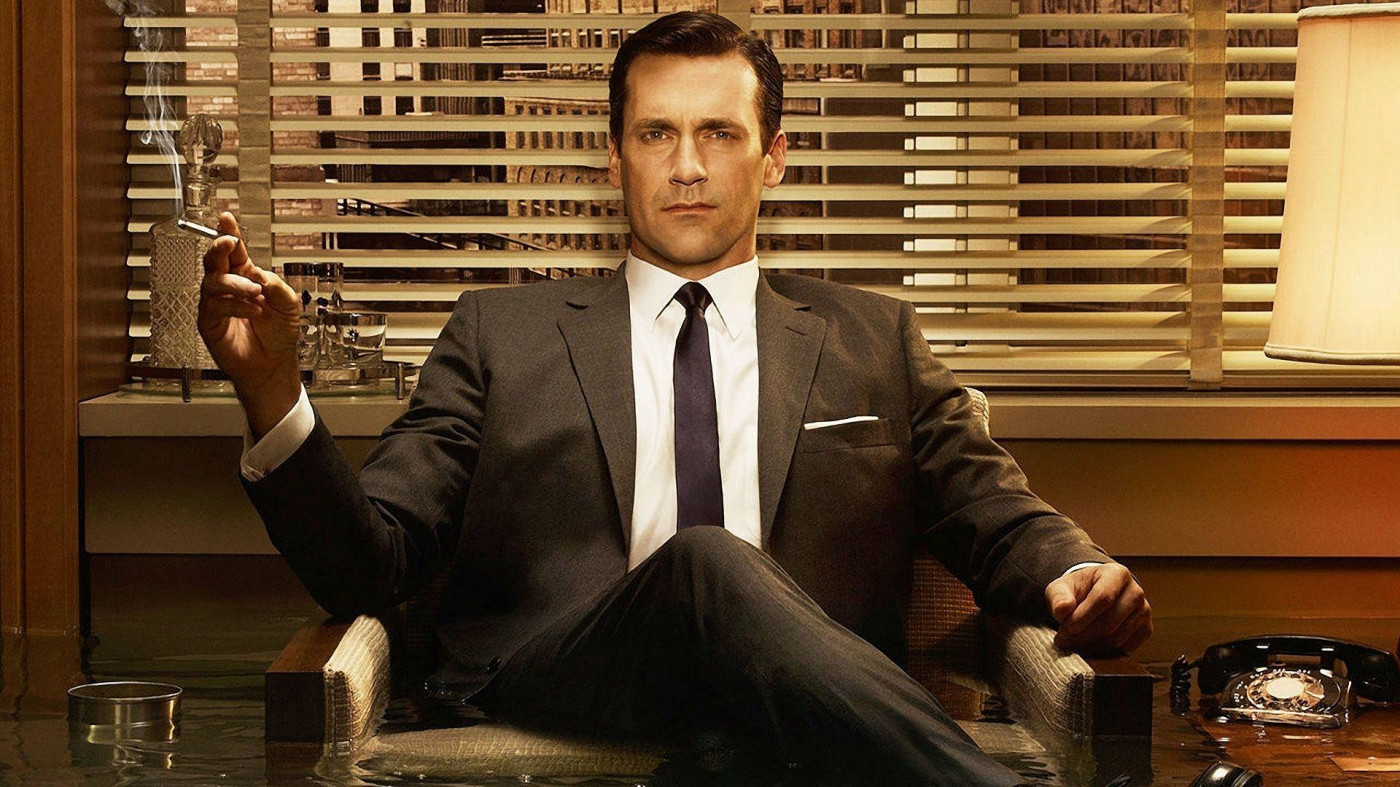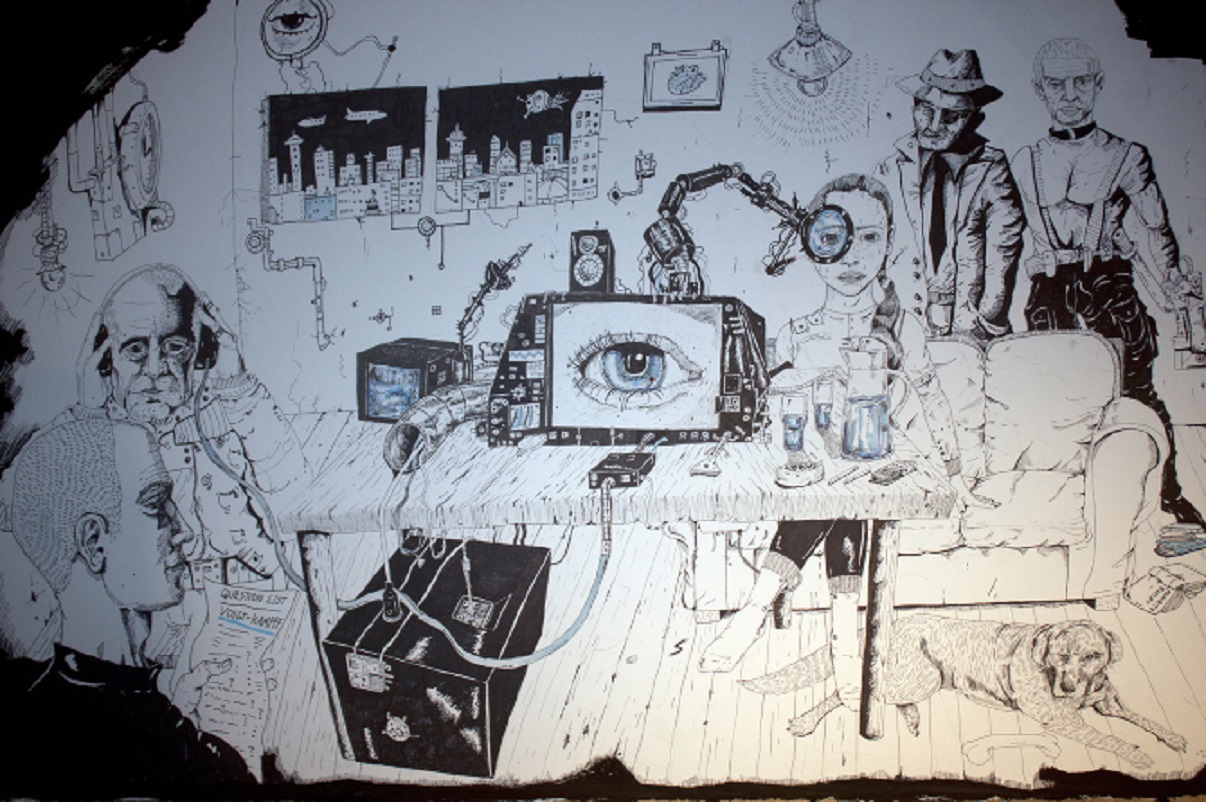Reality that we can control isn’t reality, and yet all we ever do is control reality! We are the supreme masters of controlling reality – that’s our game and we’re very good at it. We’re superlatively good at it – we do it without even noticing that we are doing anything at all. The ability to (apparently, at least) control reality is what we all measure ourselves by – having this proven ability is what makes us winners rather than losers.
We could say that we are ‘masters at the art of controlling reality’ but this implies that we have some sort of choice in the matter and we don’t. We’re not really masters of controlling reality but slaves to the perceived need to control it. When we can be successful slaves who are able to do what we’re supposed to do then we feel good about ourselves and good about our situation, and when we can’t obey so successfully then we start to feel very bad indeed. This is the feeling we most want to get away from.
What we’re talking about here is fear and there is more to fear than we think there is. There is far more to fear than we’d like to believe there is – fear is what lies behind the Game of Self-Deception and the Game of Self-Deception is what the psychology of the everyday self is all about (although we can’t of course admit to this). How could we ever admit to the existence of the Game of Self-Deception without us at the same time going against that very same principle?
When we are able to successfully control reality then we don’t in any way know that we’re doing so. We’re ‘doing the thing’ but we don’t know that we are – we’ll swear that we’re not doing anything. If we had any insight at all about this secret activity of ours then this would be a highly unsettling type of awareness to have, to say the least – it is highly unsettling because we then have to wonder why we’re continuously controlling reality (or rather controlling the meaning that reality has for us). If I am putting so much effort into hiding, or running away, then whatever it is that I’m hiding from or running away from must be ‘a bad thing’, after all. The logic is inescapable. If I were to actually discover that my whole existence is a dodge or an evasion, then this awareness naturally doesn’t bode well for me. To discover that I am running is to uncover the existence of a kind of background ‘permafrost’ of fear, a fear that rules (or determines) my life.
Reality that we have successfully controlled – which is to say, reality which has been tampered with so that it conveniently agrees with the way we want to see it – is not reality, obviously. It’s something else. It’s only reality when we ourselves haven’t made it; it’s only reality if we can find it within ourselves to let it alone to do its own thing! The problem here is of course that we are afraid of what reality might do if we let it alone to do its own thing. We very much suspect that we won’t like what it’s going to do (or how it’s going to be) and that’s the whole problem. That’s why we’re all so hooked on controlling (or ‘obtaining the definite outcome’) – who knows what might happen if we slack off, after all? Reality – for us – is a task; it’s not ‘a thing that is perfectly fine in itself’ – it’s something that absolutely needs to be controlled. Our failure in this regard is be a catastrophe that we can’t bring ourselves to contemplate.
The truth is that we can’t actually know what would happen if we were to allow reality to do its own thing (although when it comes down to it we can’t actually stop reality being reality – we can only do that in our own imaginations). It is completely impossible for us to know what reality will be if we let it be what it is but – all the same – our fears tell us that it won’t be good news for us. Our fears tell us that it will turn out to be ‘the worst news ever’. We have no basis for jumping to such a conclusion (we’re ‘shooting in the dark’, after all) but – all the same – there’s no way that we’re ever going to chance it. There is no way that we’re ever going to take this particular risk and our refusal to take this risk is what defines us.
The ultimate risk for us is ‘the risk of letting reality be what it already is’ therefore and the necessity to ensure the avoidance of this risk is what our whole lives are based on. Avoiding the central risk of existence – as the existential philosophers would put it – is what defines our entire lives for us therefore. If my whole life is secretly predicated upon the perceived need to avoid the risk of letting things be what they actually are (whatever that might turn out to be!) then there’s no way that this won’t define everything about me. That’s how things work after all – that is always how things work. When my fundamental agenda is to ‘avoid existential risk’ then there is – needless to say – no chance of me ever deliberately departing from that agenda, not even in the smallest way, and so what we’re talking about here is determinism, pure and simple. Even if I were to try to deliberately depart from my agenda that wouldn’t work since all that’s happened here is that I’ve flipped the agenda around from ‘positive to negative’ – instead of having an agenda to avoid ER I now have an agenda to have no agenda which is still me avoiding ER. I’m still orientated towards the framework of logic, the framework of thought. Whenever I do something that is based on my thoughts or ideas this is ‘avoiding existential risk’; all I can do (when I’m in Purposeful Mode) is avoid existential risk…
Determinism doesn’t mean that there is ‘no such thing as freedom’, therefore – it simply means that there is no freedom in this particular inverted mode of existence (i.e. the mode of existence in which I am identified with the extrinsic or thought-created self). There absolutely is such a thing as freedom but it just so happens that I am deadly afraid of it. Freedom is what I am avoiding, after all – ‘freedom’ and ‘existential risk’ turn out to be two ways of talking about the same thing. Freedom and reality are two ways of talking about the same thing – if I’m afraid to let reality ‘do what it’s going to do’ (or ‘be what it is going to be’) then I will have no freedom in my life, as is very obvious when we actually go into it to any extent. The only way I can ever be free as if I can find it within myself to take the risk that is inherent in existence and taking this particular risk – as we keep on saying – happens to be ‘the thing that we are most afraid of’. Existential risk (which is what we incur when we stop controlling) is the most terrifying thing there is, as far as we’re concerned.
So we don’t know what reality is going to do if we let it off the leash and we don’t exactly trust that this will be a good thing either and this means that we are obliged to keep on controlling it, or at least keep on trying to control it. In this ceaseless controlling there is absolutely no freedom, which is something that we don’t tend to focus on. Instead of seeing that there is zero freedom in our controlling we look at things in a hopeful or positive way and say that there will be freedom, or that there could be freedom – provisionally or conditionally speaking. We understand it to be the case that there will be freedom if or when we manage to control our situation successfully. Becoming free is the motivation behind our controlling therefore and this is more than just a little bit odd – it’s odd because we’re controlling so as to avoid the risk of existence (which is the same thing as freedom) and yet we allow ourselves to imagine that we will somehow obtain freedom as a prize for our successful controlling!
Our unshakeable belief in this ‘backwards’ way of looking at things causes us tremendous suffering. It’s not a belief that does us the least bit of good, being – as it is – completely self-contradictory! When we can’t control successfully then we are condemning of ourselves, judgemental of ourselves, blaming of ourselves – we see ourselves as being losers and this is the one thing that no one wants to be. On the other hand, if we do manage to control successfully then all we’re achieving by this is our own downfall which we can’t see as a downfall. We’re scoring points against ourselves; we’re scoring an own goal every time. When we succeed in our controlling we get to feel good about ourselves, and yet our victory is at our own expense since all we’re doing is running away from our own freedom, which means both [1] running away from reality and [2] running away from who we really are.
Freedom is the very last thing we want to encounter however (or at least, it is the very last thing the mechanical aspect of ourselves wants to encounter, and that’s the aspect which is running the show) and so it should come as no surprise that we should celebrate our successful ‘running away’. We see that as ‘a good thing’ – we’ve switched everything around so that freedom no longer means freedom; in the game we’re playing – but not admitting we’re playing – freedom doesn’t mean freedom but rather freedom has become a secret code word for ‘freedom from freedom’. This is what J.G. Bennett calls negative freedom. This is without any doubt at all what we mean (although we don’t know that) when we talk about ‘valuing freedom’. It’s not freedom we value at all, but freedom’s inverted analogue. We value the antithesis of freedom, which is what is supplied for us by the game that we are playing. This is the ‘back-to-front’ game, the ‘self-deception game’ – the ‘game of avoiding existential risk whilst pretending the whole time that this is not what we’re doing’.






